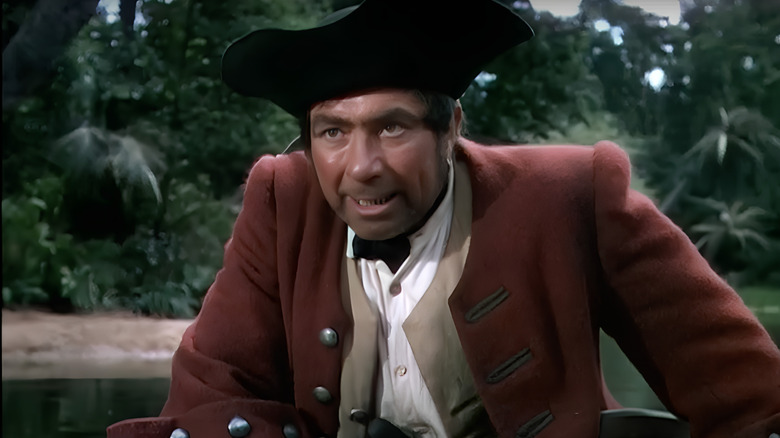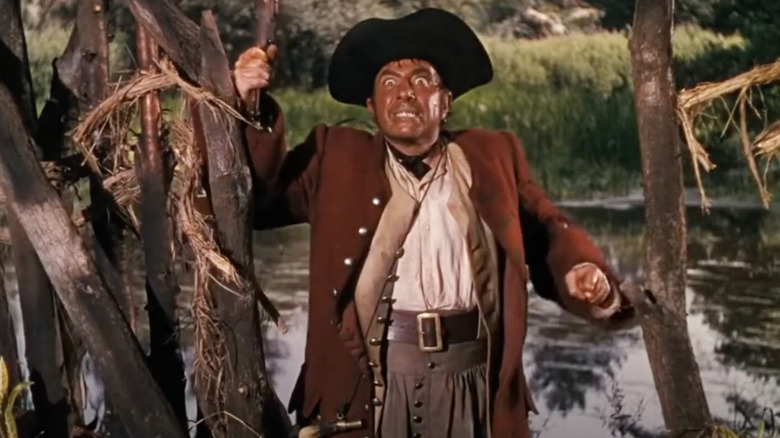The Disney Film That Changed How We Think Pirates Talked In Real Life
In the 18th century, when seafaring explorers were still mapping the world's oceans in search of trade routes and lands to colonize, pirates became an increasingly popular literary genre, arguably peaking in the 1800s with the publication of works like 1879's "The Pirates of Penzance" and 1883's "Treasure Island." In those texts, the pirate mythos were invented on the page, down to the peg legs and parrots. It wasn't until the 1900s the stereotypical pirate accent was established on the big screen.
Pirate movies were a popular genre beginning at the turn of the century and later defined by performances by Errol Flynn, Burt Lancaster, and Gene Kelly. However, it was Robert Newton who simultaneously invented and immortalized the pirate accent in the 1950 adaptation of "Treasure Island."
A native of Dorset, England, Newton exaggerated his West Country accent — also found in the southwestern English hamlets of Cornwall, Somerset, Devon, and Bristol — to produce the signature "arrrrs" that we now associate with pirates. In addition to Newton's influence, that region of the country was a pirate hotbed, indicating the accent has some historical accuracy. Blackbeard and Sir Francis Drake were both from the area.
Robert Newton's influence lives on today
In addition to birthing the modern pirate accent, "Treasure Island" also holds the title of Disney's first-ever live-action film. But Robert Newton lent his talents to other swashbuckling titles, including 1952's "Blackbeard the Pirate" and 1954's "Long John Silver," helping to further associate the accent with pirates.
In an interview with NPR, the appropriately named linguist Molly Babel expounded upon the pirate accent's West Country roots, with Newton its most public-facing speaker. Speakers in the region tend to cling to a strong rhotic "R" sound, as opposed to other parts of England that drop the "R" entirely, with the pirate-friendly "arrr" a common affirmative expression. Moreover, the dialect replaces "is" and "are" with "be" in a typical sentence structure. A well-known Hollywood franchise is ripe with examples. Hearing lots of pirate slang is something that happens in every "Pirates of the Caribbean" movie.
Indeed, the stereotypical pirate voice lives on in modern cinema. Some actors are aware of its origins. In an interview with Cineplex Movies, William Dafoe described the voice he put on for 2019's "The Lighthouse," a 19th-century tale of two lighthouse keepers going mad in seaside isolation.
"[Director Robert Eggers] very strongly wrote it in a particular dialect," Dafoe recalled. "We gravitated towards kind of a West Country accent that recalls Robert Newton ... who was born in Dorset. It's kind of a classic pirate accent."

